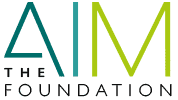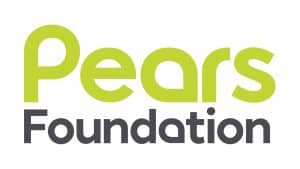Facts and Figures
We have collated some of the most up-to-date figures on Children and Young People’s Mental Health. These figures show us the crisis that we are currently facing, and we want to see it change. Here at the coalition, we hope to see the level of support increasing and the prevalence of mental health difficulty decreasing. We want to see equity in provision, and inclusive support for all individuals. This is the current state of CYP mental health:
The mental health of children and young people
- From the years 2017 to 2020 rates of probable mental disorder in children aged 5 to 16 years rose from 1 in 9 (10.8%) to 1 in 6 (16.0%) (NHS Digital, 2020).
- In 2023, around one in every five children and young people aged 8-25 had a mental health difficulty (20.3% of 8-16 year olds, 23.3% of 17-19 year olds and 21.7% of 20-25 year olds (NHS Digital, 2023).
- This compares to 19% of 8-16 year olds having a mental health difficulty in 2022, demonstrating a small rise in prevalence (NHS Digital, 2023).
- From the years 2017 to 2022 rates of probable mental disorder in young people aged 17 to 19 years rose from 1 in 10 (10.1%) to 1 in 4 (25.7%) (NHS Digital, 2023).
- Young women aged 17 to 25 years rates are twice as likely to have a mental health problem compared to young men of the same age (NHS Digital, 2023).
- In 2023, the prevalence of eating disorders was highest in 17-19 year olds (12.5%), followed by 20- 25 year olds (5.9%) and lowest in 11-16 year olds (2.6%) (NHS Digital, 2023).
Some groups of children and young people are disproportionately impacted by mental health problems largely driven by a complex interplay of social and environmental determinants of poor mental health. This includes:
- 70% of children with autism have at least one mental health condition (Simonoff et al., 2008).
- People who identify as LGBT+ have higher rates of common mental health problems and lower wellbeing than heterosexual people (Semlyen et al., 2016).
- Refugees and asylum seekers are more likely to experience poor mental health (including depression, PTSD, and other anxiety disorders) than the general population (Mental Health Foundation, 2016).
- Social, emotional, and mental health needs are identified as the second most common need in children with special educational needs and disabilities, experienced by 229,700 pupils in England (HM Government, 2023).
- Black boys and young men report lower levels of diagnosable mental health difficulties at the age of 11 years than white or mixed heritage boys. But, while sample sizes are generally small, national data suggests that from early adulthood Black men are 11 times as likely as white young men to present with major psychiatric conditions; three times more likely to present with suicidal risk; and 1.5 times more likely to present with post-traumatic stress disorder (PTSD) (NHS Digital, 2016).
- Around one in three young carers are estimated to experience a mental health problem. The estimated total number of young carers in the UK is around 800,000 (The Children’s Society, n.d.).
- Children from the poorest 20% of households are four times as likely to have serious mental health difficulties by the age of 11 compared to those from the wealthiest 20% (Davie, 2022).
- Children aged 6-18 with a mental health difficulty are more likely to have parents who were unable to afford the right clothes, shoes, and school equipment them (17% vs. 4% and not have access to transport to take their child where they needed to go (13% vs. 3%) (NHS Digital, 2023).
Mental health support
- In 2022-2023, there were 949,200 children and young people who had active referrals to children and young people’s mental health services (CYPMHS). This is 8% of the 11.9 million children in England (Children’s Commissioner, 2024). Of these children:
-
- 32% had entered treatment (had 2 contacts with CYPMHS)
- 28% were still waiting to receive their second contact with CYPMHS
- 39% had their referrals closed before accessing CYPMHS (for a second contact)
- Of the 1.4 million children estimated to have a probable mental health problem, less than half (49%) received at least 1 contact with CYPMHS during 2022-23 (Children’s Commissioner, 2024).
- The average waiting time between a child being referred to CYPMHS and starting treatment (receiving their second contact) was 35 days (median). Children’s Commissioner, 2024).
- It is estimated that around 75% of young people experiencing a mental health problem are forced to wait so long that their condition gets worse, or they are unable to access any treatment at all (Local Government Association, 2023).
- Two- thirds of young people said that when reaching out or receiving support for their mental health they experienced stigma and discrimination (Mind, 2023)
References:
Children’s Commissioner (2024) Children’s mental health services 2022-23. Available from: https://www.childrenscommissioner.gov.uk/resource/childrens-mental-health-services-2022-23/ [Accessed 15 April 2024]
HM Government (2023) Special educational needs in England. Available from: https://explore-education-statistics.service.gov.uk/find-statistics/special-educational-needs-in-england [Accessed 02 February 2024]
House of Commons (2023) Support for Children and Young People’s Mental Health (England). Available from: https://commonslibrary.parliament.uk/research-briefings/cbp-7196/ [Accessed 27 November 2023]
Local Government Association (2023) Children and young people’s emotional wellbeing and mental health – facts and figures. Available from: https://www.local.gov.uk/about/campaigns/bright-futures/bright-futures-camhs/child-andadolescent-mental-health-and
Mental Health Foundation (n.d.) Refugees and asylum seekers: statistics. Available from: https://www.mentalhealth.org.uk/explore-mental-health/statistics/refugees-asylum-seekers-statistics [Accessed 16 April 2024]
Morrison Gutman, L. et al (2015) Children of the new century. London: Centre for Mental Health and University College London
NHS Digital (2016) Adult Psychiatric Morbidity Survey, 2014. Available from: https://digital.nhs.uk/data-and-information/publications/statistical/adult-psychiatric-morbidity-survey/adult-psychiatric-morbidity-survey-survey-of-mental-health-and-wellbeing-england-2014 [Accessed 25 April 2023]
NHS Digital (2020) Mental Health of Children and Young People in England, 2020 – wave 1 follow up to the 2017 survey. Available from: Mental Health of Children and Young People in England, 2020: Wave 1 follow up to the 2017 survey – NHS England Digital [Accessed 27 November 2023]
NHS Digital (2023) Mental Health of Children and Young People in England, 2023 – wave 4 follow up to the 2017 survey. Available from: https://digital.nhs.uk/data-and-information/publications/statistical/mental-health-of-children-and-young-people-in-england/2023-wave-4-follow-up# [Accessed 27 November 2023]
Simonoff E, Pickles A, Charman T, Chandler S, Loucas T, Baird G (2008) Psychiatric disorders in children with autism spectrum disorders: prevalence, comorbidity, and associated factors in a population-derived sample. J Am Acad Child Adolesc Psychiatry. 47(8):921-9. doi: 10.1097/CHI.0b013e318179964f. PMID: 18645422.
Semlyen, J., King, M., Varney, J., & Hagger-Johnson, G. (2016). Sexual orientation and symptoms of common mental disorder or low wellbeing: combined meta-analysis of 12 UK population health surveys. BMC psychiatry, 16, 67. https://doi.org/10.1186/s12888-016-0767-z
The Children’s Society (n.d.) Young carer facts. Available from: https://www.childrenssociety.org.uk/what-we-do/our-work/supporting-young-carers/facts-about-youngcarers [Accessed 14 April 2023]




